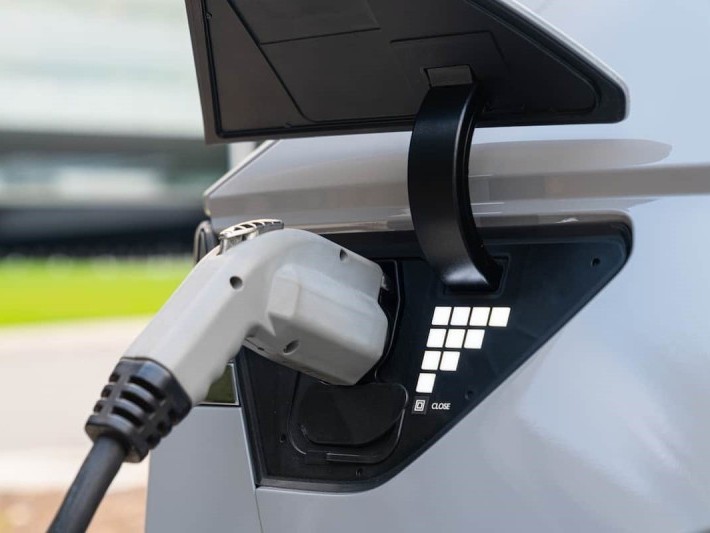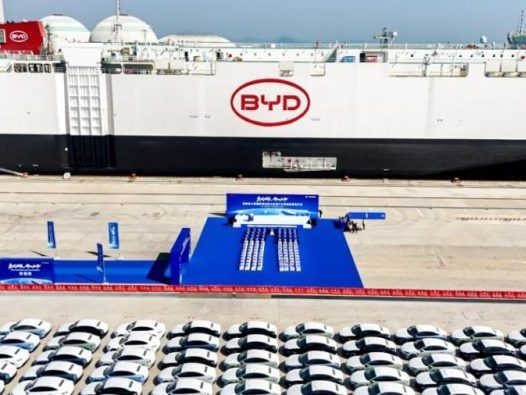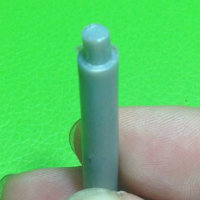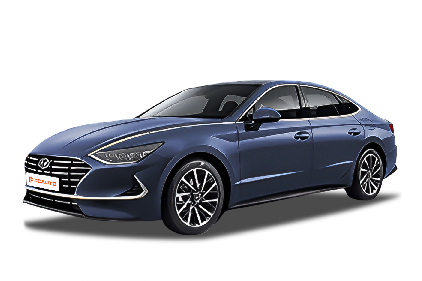Q
What's the service life of Hyundai Sonata?
The service life of Hyundai Sonata can vary due to multiple factors such as maintenance conditions, driving habits, and environmental conditions. Generally speaking, if properly maintained, Hyundai Sonata can be used for many years and cover a considerable mileage. Sonata offers a 5 - year or 300,000 - kilometer warranty, which reflects the brand's confidence in the vehicle's durability. Under normal use, the engine and transmission of the Sonata can withstand at least 150,000 - 200,000 kilometers or even more. Some owners who take good care of their vehicles have seen their Sonatas reach a mileage of over 250,000 kilometers. Components like the battery usually last about 3 - 5 years, while the brake pads may need to be replaced every 50,000 - 70,000 kilometers. Regular maintenance, using high - quality parts, and smooth driving all contribute to extending the service life of the Sonata.
Special Disclaimer: This content is published by users and does not represent the views or position of PCauto.
Related Q&A
Q
What is the life expectancy of Hyundai Sonata Hybrid?
The service life of the Hyundai Sonata Hybrid can vary depending on multiple factors. Generally speaking, the battery of the Sonata Hybrid usually lasts about 5 years. As for other components, Hyundai offers a 5 - year or 300,000 - kilometer warranty for the whole vehicle, which reflects the expected durability of the vehicle under normal use conditions. The warranty periods for some core components, such as the power battery assembly, drive motor assembly, motor controller assembly, and vehicle controller assembly, are even longer, sometimes up to 8 years or 150,000 kilometers. Regular maintenance, good driving habits, and usage conditions all play important roles. If properly maintained, serviced on time, and driven carefully, this car has the potential to serve you for over 10 years and cover a mileage of as much as 200,000 kilometers or more.
Q
Which model of Hyundai Sonata is the most expensive ?
Currently, the most expensive model of Hyundai Sonata in Malaysia is the Sonata N-Line version, with an official price of approximately RM218,888 (excluding insurance). This high-performance version is equipped with a 2.5L Turbo GDi four-cylinder engine, capable of outputting 290 horsepower and 422 Nm of torque. Paired with an 8-speed wet dual-clutch transmission and front-wheel drive, it can accelerate from 0 - 100 km/h in just 6.2 seconds.
Compared with the standard Sonata (equipped with a 1.6L Turbo or 2.0L naturally aspirated engine), in addition to its powerful performance, the N-Line is equipped with a sport-tuned suspension, 19-inch wheels, an exclusive N Line exterior kit (including a more aggressive aerodynamic design and quad exhaust pipes), and an all-black interior with red stitching, giving it an overall sporty coupe style.
Although it's price is high, the N-Line version offers a comprehensive configurations, including the advanced Hyundai SmartSense active safety system (such as SCC Smart Cruise Control and FCA Forward Collision Warning), a panoramic sunroof, and a Bose sound system. It's a great choice for consumers who seek both performance and luxury.
Q
How about the speed performance of Hyundai Sonata?
The speed performance varies among different models of the Sonata. The top speed of the 2020 Hyundai Sonata 2.5 Premium can reach 210 km/h, while the top speeds of the 2017 Hyundai Sonata 2.0 Elegance and Hyundai Sonata 2.0 Executive are 200 km/h. These figures reflect the vehicle's potential in terms of power performance. However, in actual driving, it's difficult to reach the vehicle's top speed due to factors such as road conditions, traffic regulations, and driving behavior. For example, the speed limits on ordinary city roads are usually quite low. Although the speed limits on highways are relatively higher, it's not allowed to speed at will. It is recommended that everyone abide by the regulations while driving, reasonably control the speed according to the actual situation, and ensure driving safety.
Q
What's the engine displacement of Hyundai Sonata?
Different models of Sonata have various engine displacements. For example, the 2020 Hyundai Sonata 2.5 Premium is equipped with an engine with a displacement of 2497cc, which can provide ample power to meet the needs of daily driving and some driving scenarios with power requirements. As for the 2017 Hyundai Sonata 2.0 Elegance and Hyundai Sonata 2.0 Executive, their engines have a displacement of 1999cc. Relatively speaking, they may perform better in terms of fuel economy and can also provide stable power output for the vehicle. Engines with different displacements each have their own characteristics. Consumers can choose the model that suits them according to their own driving habits, such as the demand for power and considerations regarding fuel consumption.
Q
What's the service life of Hyundai Sonata's spark plugs?
The service life of the Hyundai Sonata's spark plugs depends on their types. The more affordable nickel alloy spark plugs typically last about 20,000 - 30,000 kilometers. Platinum spark plugs, with better heat and corrosion resistance, can be used for 60,000 - 80,000 kilometers. Iridium spark plugs, known for their high ignition performance, usually have a service life of 80,000 - 100,000 kilometers or even longer.
However, other factors can also have an impact. If the vehicle often drives under harsh conditions such as extreme temperatures, high humidity, and dusty areas, or experiences frequent starting and stopping, the spark plugs may wear out more quickly. Aggressive driving habits like rapid acceleration and hard braking can also increase the engine load and accelerate the aging of the spark plugs. Therefore, although the above are general reference standards, it's very important to regularly check the condition of the spark plugs and follow the vehicle maintenance manual for optimal performance.
Q
Does Hyundai Sonata have spark plug wires?
Yes, Hyundai Sonata is equipped with spark plugs, but it doesn't have the traditional externally exposed spark plug wires. Spark plugs are crucial components in the engine's ignition system, as they generate electric sparks to ignite the air - fuel mixture in the engine's combustion chamber, enabling the engine to operate properly.
With the development of modern automotive technology, many vehicles, including the Hyundai Sonata, have adopted the Distributorless Ignition System (DIS) or the Direct Ignition System (DI). In these systems, the ignition coils are directly installed on top of the spark plugs, providing high - voltage electricity directly to the spark plugs. They no longer rely on the traditional long spark plug wires to transmit high - voltage electricity.
This design reduces electromagnetic interference, improves ignition efficiency and engine performance, and also decreases the likelihood of spark plug wire failures, such as electrical leakage and aging. At the same time, it enhances the overall reliability of the vehicle and its fuel economy.
Q
How many cylinders does Hyundai Sonata have?
Whether it's the regular version or the N-Line version, the Sonata features a 4-cylinder (inline-four) engine layout, which is also a common engine configuration for mainstream mid-size sedans these days. This setup can not only deliver decent power output but also balance it with fuel efficiency. Hyundai has invested lot in developing turbocharged engine technology in recent years. For example, the SmartStream series of engines has optimized combustion efficiency and reduced emissions, enabling the four-cylinder engine to achieve performance comparable to that of a six-cylinder engine. If car owners prefer more potent power, they might need to consider higher-end rear-wheel-drive or all-wheel-drive performance cars. However, for general family use or mild sporty driving needs, the 1.6T or 2.5T four-cylinder engines are good enough for daily driving and highway cruising.
Q
How much does it cost to change Hyundai Sonata's spark plugs ?
The cost of replacing the spark plugs of Hyundai Sonata ranges from approximately RM200 to RM500, depending on the model year, engine type (1.6T or 2.5T), and the brand of spark plugs used (such as NGK, Denso, or original factory parts). A standard 1.6L Turbo engine usually uses iridium or platinum spark plugs, which cost around RM50 to RM150 each. On the other hand, the 2.5L Turbo engine (N - Line version) may require higher - performance spark plugs, which are slightly more expensive (around RM80 to RM200 each).
In addition, labor costs typically range from RM80 to RM150. Dealerships may charge more, providing factory - certified parts. Third - party repair shops offer lower prices, but you need to make sure the technicians perform well in the operation.
The spark plug replacement interval for the Hyundai Sonata is generally between 60,000 and 100,000 kilometers. However, if your vehicle experiences vibrations, has difficulty starting in cold weather, or shows an increase in fuel consumption, you may need to check the spark plugs earlier. It's recommended that owners have technicians inspect the spark plugs during regular maintenance and choose high - quality spark plugs that can withstand high temperatures and resist carbon deposits to ensure optimal engine combustion efficiency.
Q
How many spark plugs does Hyundai Sonata have?
Hyundai Sonata usually has four spark plugs. This is because most Sonata models are equipped with four-cylinder engines, and in gasoline engines, each cylinder is typically assigned one spark plug. Spark plugs play a crucial role in the operation of the engine. They are responsible for igniting the air-fuel mixture in the cylinders, enabling the engine to generate power. For example, the 2020 Hyundai Sonata 2.5 Premium and the 2017 Hyundai Sonata 2.0 Elegance/Executive models are both equipped with four-cylinder engines, and these models all have four spark plugs. Regularly inspecting and timely replacing the spark plugs according to the vehicle's maintenance schedule helps ensure smooth engine operation, good fuel efficiency, and reliable vehicle performance.
Q
How often should I change the spark plugs in my Hyundai Sonata?
The frequency of replacing the spark plugs in your Hyundai Sonata depends on the type of spark plugs installed. Nickel alloy spark plugs are affordable, but they have a short service life. You should consider replacing spark plugs when the vehicle has traveled about 20,000 - 30,000 kilometers. Platinum spark plugs are known for their good heat resistance and corrosion resistance and can be used for 60,000 - 80,000 kilometers. Iridium spark plugs have high ignition performance, and their service life is generally 80,000 - 100,000 kilometers or even longer.
In addition, the operating conditions of the vehicle also affects the service life of spark plugs. If you often drive in harsh environments such as extreme heat, humidity, and dust, or frequently start and stop the vehicle, or have a habit of aggressive driving, the spark plugs may wear out fast, and you may need to replace them early. Regularly refer to the vehicle's owner's manual, as it may provide more specific guidance for your Sonata model.
Latest Q&A
Q
What kind of oil does 2018 Passat use?
For the 2018 Volkswagen Passat in Malaysia, the recommended oil specs typically call for synthetic oils that meet VW 502 00 or VW 504 00 standards, with viscosity grades of 5W-30 or 5W-40 being the go-to choices. Your final pick should really depend on your actual driving conditions and habits though – here in Malaysia's hot climate, for example, 5W-40 might be the better bet thanks to its stronger high-temperature protection.
Sticking to regular oil changes is huge for keeping your engine running strong long-term. As a general rule, aim to change it every 10,000 kilometers or 12 months, whichever comes first. Also, when you're picking out oil, always double-check that it has international certifications like API SN or ACEA A3/B4 – that's your guarantee of reliable quality.
If your Passat has a diesel engine or is a high-performance variant, it might need a specific oil type, so your best move is to check the owner's manual or have a chat with an authorized service center. It's also handy to know what those oil numbers mean – "5W" tells you about cold-weather flow, while "40" refers to hot-temperature thickness. A little knowledge here goes a long way in helping you make the smartest choice for your car.
Q
Does a 2018 Volkswagen Passat have a turbo?
The 2018 Volkswagen Passat in Malaysia does come with a turbocharged engine, specifically a 1.8-liter TSI turbocharged petrol unit. This engine pushes out 180 horsepower and 250 Nm of torque, and it's a solid combo of turbo tech and direct injection that delivers great power while still being kind on fuel – perfect for both city commuting and those longer highway drives we Malaysians love. Turbocharging works by compressing the intake air, which boosts engine efficiency and power, so you get plenty of torque even at low revs, making acceleration feel smooth and effortless.
On top of that, the 2018 Passat also gets VW's DSG dual-clutch gearbox, which really sharpens up the shifts and makes the whole driving experience that much more engaging. For Malaysian buyers, a turbo engine isn't just about daily driving needs; it also gives you that extra oomph for confident overtaking on the highway. And let's not forget, Volkswagen's reputation for reliability and their widespread after-sales network here mean owning one is pretty hassle-free.
If turbo tech has caught your interest, it's worth checking out turbo models from other brands like Toyota or Honda too – each has their own engineering twists. But when it comes to balancing power and fuel efficiency, VW's TSI engines really stand out from the pack.
Q
Are there any recalls on a 2018 VW Passat?
For the record, the 2018 Volkswagen Passat was subject to safety-related recalls in certain markets. In North America, for instance, a recall was issued due to a potential fault in the fuel pump control unit that could lead to stalling. As for the Malaysian market, it's best to refer to official Volkswagen announcements there. We recommend owners check via the recall inquiry page on Volkswagen Malaysia's website by entering their Vehicle Identification Number (VIN) or contact an authorized service center directly, as recall situations can vary by region based on local regulations and vehicle specifications.
Staying on top of recall information is a key part of vehicle maintenance, especially for updates involving critical components like airbags, fuel systems, or electronic stability programs. Even if your Passat isn't part of a recall, sticking to the manufacturer's maintenance schedule is crucial to keep it running at its best. For more details on common upkeep points specific to the Passat—think DSG transmission care or turbocharged engine maintenance tips—reaching out to local Volkswagen technicians is the way to go for personalized advice.
Q
What is the fuel consumption of the 2018 Volkswagen Passat?
The 2018 Volkswagen Passat's fuel economy in the Malaysian market varies depending on the powertrain. The 1.8-liter TSI turbocharged engine variant delivers a combined fuel consumption of around 6.5 liters per 100 kilometers, while the 2.0-liter TSI model is slightly thirstier at approximately 7.2 liters per 100 kilometers. Real-world figures, of course, can fluctuate based on driving habits, road conditions, and maintenance upkeep.
Riding on Volkswagen Group's proven MQB platform and paired with a DSG dual-clutch transmission, this model strikes a nice balance between power delivery and fuel efficiency – ideal for both city commutes and highway stretches across Malaysia. It's worth highlighting how turbocharging technology effectively boosts performance from smaller-displacement engines while keeping fuel consumption relatively low, a trend we've seen increasingly adopted in mid-size sedans here in the local market.
To keep your Passat running at its most efficient, regular maintenance is key. Make sure to replace the air filter and spark plugs as scheduled, and always use engine oil that meets the manufacturer's specifications. These simple steps go a long way in preserving optimal fuel economy over time.
If you're in the market for a used Passat, do yourself a favor and check the complete service history through official channels. It's the best way to ensure the vehicle still performs as well as it did when it left the factory.
Q
Why is my 2018 Passat not starting?
There are a few common reasons why your 2018 Passat might be refusing to start. First up, battery issues. Malaysia's hot and humid climate can really take a toll on battery life, so it's worth checking if the voltage has dropped below 12.4 volts or if the terminals are looking corroded.
Next, a faulty starter motor or alternator could be the culprit – both can leave you short on electrical power. Don't rule out fuel system problems either, like a busted fuel pump or a clogged fuel filter. These tend to happen more often if you've been using low-quality petrol regularly.
Then there's the ignition system; worn spark plugs or a dodgy ignition coil can definitely make starting a hassle. If your Passat has a smart key, don't forget to check if the key fob battery is dead, which might stop the car from recognizing it.
If any warning lights are flashing on the dashboard – especially the check engine light – hook up an OBD scanner to read the trouble codes as soon as you can. For regular maintenance, swap out the battery every 2-3 years, stick to the recommended fuel grade, and replace the spark plugs around every 60,000 kilometers. These simple steps can go a long way in preventing starting headaches. If you've checked all this and still can't get it going, best to reach out to an authorized service center for a professional diagnosis.
View MoreRelated News

Modern Ioniq 5 N Lands in Malaysia: Track-Level Performance Electric Vehicle is Here, Priced Possibly Below RM 400,000?
JohnSep 10, 2025

Hyundai's Big Return to Malaysia: Top 5 Models Expected
MichaelMay 30, 2025

580,000 km & 87.7% Battery Health: Ioniq 5’s Incredible Durability
MichaelMay 6, 2025

Revolutionizing Hybrids: Hyundai’s New System vs. Toyota's Hybrid System
Kevin WongApr 22, 2025

BYD Sets Global Sales Target of 5.5 Million Units for 2025
RobertMar 26, 2025
View More

















Pros
Cons